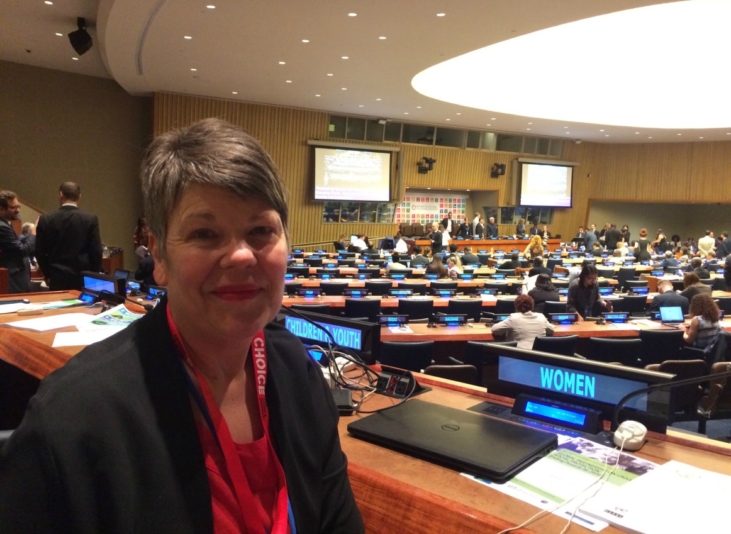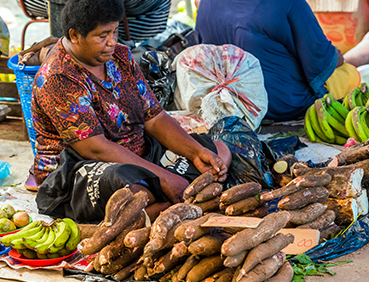IDM at the High Level Political Forum, 2017
 The High-level Political Forum (HLPF) is the main mechanism for follow-up and review of the 2030 Agenda for Sustainable Development and the Sustainable Development Goals (SDGs), the ambitious, holistic road map to achieve a sustainable and prosperous future for people and planet agreed in September 2015. The HLPF is the central platform for follow-up and review of the SDGs, held annually in July, over 8 days, at UN Headquarters in New York. This year, 2017, saw the second High Level Political Forum on Sustainable Development , bringing together some 2,458 registered stakeholder representatives and 65 ministers, cabinet secretaries and deputy ministers to review progress, share initiatives and hold governments to account for their commitments.
The High-level Political Forum (HLPF) is the main mechanism for follow-up and review of the 2030 Agenda for Sustainable Development and the Sustainable Development Goals (SDGs), the ambitious, holistic road map to achieve a sustainable and prosperous future for people and planet agreed in September 2015. The HLPF is the central platform for follow-up and review of the SDGs, held annually in July, over 8 days, at UN Headquarters in New York. This year, 2017, saw the second High Level Political Forum on Sustainable Development , bringing together some 2,458 registered stakeholder representatives and 65 ministers, cabinet secretaries and deputy ministers to review progress, share initiatives and hold governments to account for their commitments.
The HLPF is the place where formal review of progress on the SDGs takes place, including thematic discussions (7 SDGs were under review), and reports by UN member states on their progress in implementing the SDGs. In 2017, 44 countries presented Voluntary National Reviews (VNRs), sharing experiences, including successes, challenges and learning, to support and accelerate implementation of the 2030 Agenda. The process of reporting itself is intended to be inclusive and mobilise multi-stakeholder engagement and partnerships in implementing the SDGs.
Alongside these formal processes is a diverse program of side events – 147 official ones plus many other unofficial events organised in the margins – with as many as 8 events running simultaneously, starting at breakfast and finishing early evening. These side events typically bring together multiple stakeholders – governments, international organisations, UN agencies and civil society – to launch new initiatives or reports, share work underway, or highlight issues that advocates think should get more attention. This includes Spotlight or parallel reports from civil society in countries submitting a VNR.
The Individual Deprivation Measure was profiled at a side event sponsored by the Australian Government on Closing the gender data gap: measuring poverty, disability and multi-dimensional deprivation. Joanne Crawford (IWDA) represented the IDM program. Other panellists included Dr Jennifer Madans, Associate Director for Science, US National Centre for Health Statistics (Washington Group on Disability Statistics Secretariat), Dr Henriette Jansen, Technical Adviser, Violence Against Women, Research and Data, UNFPA, and Papa Seck, Chief Statistician, UN Women. The panel was moderated by Sarah Goulding, Assistant Secretary, Global Development Branch, Multilateral Development and Finance Division, Department of Foreign Affairs and Trade, Australia.
The panel showcased work underway to close gender data gaps and ensure we have the evidence base required to achieve the transformative change the 2030 Agenda commits us to. The 2030 Agenda cannot be achieved without good data on the problems we face and the effectiveness of our actions. Gender data matters: without it, it is difficult to develop policies and programs that respond to the different experiences of men and women. When data is blind to women’s lives in their diversity, we can inadvertently enforce structural and normative barriers to gender equality. Additionally, we need to do better to capture the multiple and intersecting ways in which disability, age, gender, rural/urban location and more overlap to deepen inequality and marginalisation.
Gender equality is strongly integrated in the SDG indicator framework, with 53 gender-related indicators, plus an overarching call to disaggregate data wherever possible. However, a significant proportion of indicators lack either adequate data or accepted international standards for measurement. Closing the gender data gap by investing in gender statistics and better use of available gender data is essential to realising the promise of the SDGs including the commitments to end poverty for everyone everywhere and achieve gender equality.
There was strong interest in the issues discussed by the panel from a standing room only audience of around 70 people. The IDM team will follow up with a number of stakeholders including researchers and advocates working on ageing, disability, rural poverty and indigenous peoples. All the initiatives presented are currently in progress, so subsequent HLPFs will provide opportunities to share developments and emerging insights.
The HLPF also saw the launch of the new Sustainable Development Goals Acceleration Toolkit an online compendium of tools, including the IDM, developed by the United Nations Development Group to support implementation of the SDGs. None of us have time or resources to waste, and the Toolkit aims to support effective action by bringing together available tools and tools in development to help governments, UN country teams, and expert stakeholders understand synergies and trade-offs, assess priorities and accelerate progress.
—


Comments